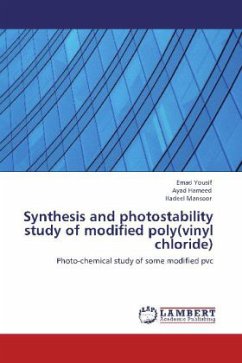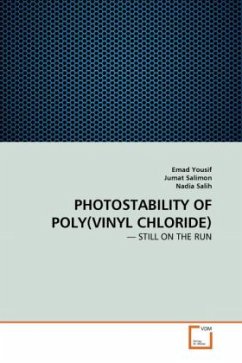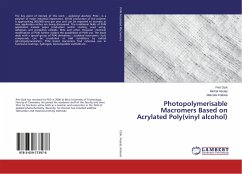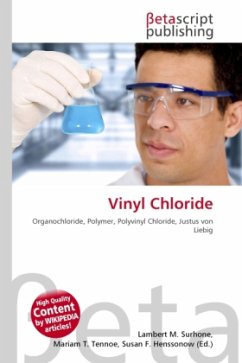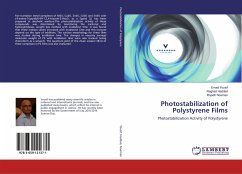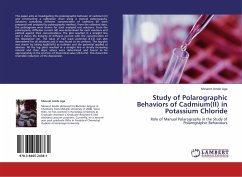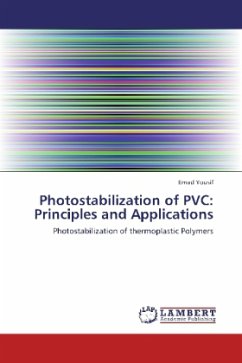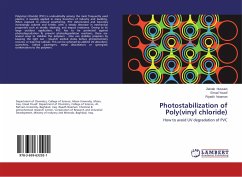
Photostabilization of Poly(vinyl chloride)
How to avoid UV degradation of PVC
Versandkostenfrei!
Versandfertig in 6-10 Tagen
24,99 €
inkl. MwSt.

PAYBACK Punkte
12 °P sammeln!
Poly(vinyl chloride) (PVC) is undoubtedly among the most frequently used plastics; it iswidely applied in many branches of industry and building. When exposed to natural weathering, PVC deteriorates and becomes increasingly colored and brittle, with a steady decrease in mechanical properties such as tensile, elasticity, and impact resistance. Owing to its large outdoor application, PVC has to be protected against photodegradation. To prevent photodegradation reactions, there are several ways to stabilize the polymers . One can stabilize polymers by keeping the light out , Quanch excited states...
Poly(vinyl chloride) (PVC) is undoubtedly among the most frequently used plastics; it iswidely applied in many branches of industry and building. When exposed to natural weathering, PVC deteriorates and becomes increasingly colored and brittle, with a steady decrease in mechanical properties such as tensile, elasticity, and impact resistance. Owing to its large outdoor application, PVC has to be protected against photodegradation. To prevent photodegradation reactions, there are several ways to stabilize the polymers . One can stabilize polymers by keeping the light out , Quanch excited states before photochemistry occures, or trap free radicals. This can be achieved by addind UV absorbers, quanchers, radical scavengers, metal deactivators or synergistic combinations to the polymers.



